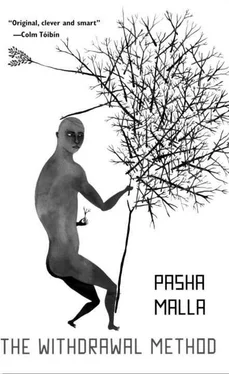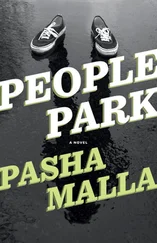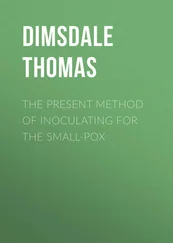I MENTION THIS to Bettis now. "You remember that year in the playoffs when you guys tried the box-and-one on us?"
He's not biting. The high-school talk isn't reeling him in like it was minutes ago. He's twisting his wedding band around his finger. He's looking at the clock. "She'll be coming out of surgery now," he tells me. "It'll all be over soon."
Dizzy should be done too, and I start to wonder why a nurse hasn't come out to tell me anything. And here's when I realize that I'm not sure I want him to come out, that I want the surgery to go on until Mom and Dad show up so I don't have to see him by myself. I imagine him with bloody stumps disappearing into bandages, lying in a hospital cot like a bomb victim. And me walking up, not knowing what to say. I can picture myself standing there, him looking at me, waiting, and then eventually I'd fish the postcard out of my pocket, hand it over. Maybe he'd take it even, that sad little piece of cardboard nostalgia — not even close to enough, so far from enough it might as well crumble to dust in his hands.
MY LAST GAME of high-school basketball was the city finals. We played a school from across town that had snuck its way through the playoffs, the Richmond Heights Golden Bears. They'd finished sixth in the regular season, then made a run, taking out the third-place team in overtime in the first round, rode the win into the semis and blew out the two-seed, then met us, who were seeded first, in the finals. They played this crazy three-quarter-court press that some schools never quite got the hang of breaking. If you rushed, they'd trap you at halfcourt and you'd either throw the ball away or turn it over on the ten-second call.
Before the game Dizzy sat there in the corner of the change room with that Che Guevara book open on his lap, warm-ups on, shoes untied. He was using the Jordan postcard as a bookmark but wasn't looking at it, instead totally sucked into whatever the hell revolution he was reading about. When McGowan came in Dizzy dropped the book into his gym bag and sat back, ready for the predictably inane pep talk the old man had planned.
The game started and the stands were packed with half our fans, half theirs, both sides going crazy with banners and cheers and a few nuts from both schools with trombones and bass drums. But we got down fast. We were caving to their press, offering stupid cross-court passes like gifts, dribbling right into their traps and getting stripped, rushing our offence and forcing dumb shots. Down our end they were hitting everything, and by the end of the first quarter were up 17-2, capped at the buzzer with a bomb from half by their shooting guard.
Second quarter, Dizzy took over. He started dropping into the backcourt when we inbounded, taking the ball himself and dribbling through the pressure, pulling up in their end and looking for me to run the offence. We started hitting shots. First possession, I nailed a three on a botched pick-androll, and then it was all Dizzy. He got the ball on the wing against their zone and found holes, weaved through it like a needle through cloth. He hit layups and jump shots, collected other people's misses and put them back for two. He drove and dished to Clark, who powered it up strong, both hands on the glass. At half-time we were down five, 31–26.
A NURSE COMES out then. Bettis and I sit up like something's stung us both. She looks at me and smiles — trying to seem nice, I guess. Then she turns to Bettis. "You can go in and see your wife now, Mr. Bettis."
He stands up and the Sports Illustrated slides off his lap to the floor, lies there glossy and glistening in the waiting-room lights. "How is she?"
"Recovering fine. The surgery couldn't have gone more smoothly."
"Oh, thank you." Bettis lays one of those paws on the nurse's shoulder. "Thank you."
He turns to me, bowing his head. "Good to see you," he says. "And good luck." And then he's gone, and by the determined way he lopes after the nurse, I have to wonder if he's already forgotten about me.
SO WE CAME OUT for the second half, and both teams started slow. We turned the ball over to their press; they couldn't hit a shot. The crowd got less rowdy, then quiet, then just bored. The game was sloppy — passes off guys' hands out of bounds, power moves fired straight off the backboard and out to the foul line. Four minutes in, with the score barely changed at 34–28, 1 dribbled the ball off my own foot and McGowan called a time out. On our way over to the huddle, Healey muttered in his Marv Albert voice, "Neither team looking confident out there."
McGowan was waiting. "Christ almighty," he spat at us and then went nuts with the marker on his clipboard, all squiggles and Xs and Os in the craziest game of tic-tac-toe you've ever seen in your life. When he was done Clark stepped up and started yelling, "Let's do this! Let's fucking do this!" and we actually sort of got into it and the other guys were up off the bench and the crowd went crazy and we stuck our hands together and "One-two-three: Northern!"
Both teams came out of the time out fired up. First possession, their big man threw down a huge dunk in traffic, and back the other way we broke their press into a three-point play by Dizzy. Then we got a steal of our own, a few more unanswered baskets, and by the end of the quarter we were tied at 47.
ALONE IN THE waiting room, I sit with the clock ticking up over my head, getting on three o'clock, and I start to think I should maybe go see if anyone's got any updates at the nurse's station down the hall.
But I'm paralyzed, stuck there sitting in my chair, Dizzy's postcard stiff and awkward in my jacket pocket. I think about the few times I came back home from school once I moved out and went away to university, sometimes a day early on holidays just to watch Dizzy's games. He dominated the league, scoring at will, but seemed casual about it, only driving to the hoop when games were close enough that he needed to.
His hair was long everywhere, not just the front, and he played with it tied up in a bun, looking like a skinny blond Buddha out there. In grade thirteen he started showing up to practice stoned, and then to games all pie-eyed and bleary, even dopier than usual. He'd still be in charge, but just a step slower than usual, just a bit off the pace of his former self. Even so, the letters kept pouring in from schools — UBC, Western, StFX.
When I'd come back for Thanksgiving or Christmas he'd be out all day and night with that same girlfriend and a bunch of kids just like her, all dreadlocks and tie-dye and bloodshot eyes from dope. He missed a tournament one weekend to go to Ottawa for some rally, some protest against something happening halfway across the world. And when he graduated, instead of taking schools up on any of the tryout offers, he headed to Guelph with his lady, lasted a semester before calling university quits forever.
There was one dinner, though, right at the end of June before high-school graduation, that seems now to mark the end of the Dizzy I thought I knew. The basketball season was a distant memory, and I'd brought Jen to meet Mom and Dad for the first time. They liked her right away, and everyone was getting along and we were talking about moving in together for the summer while we did internships at companies in Toronto. Dizzy sat at the end of the table sneering at us and pushing his food around, barely acknowledging Jen was even there. When I talked about trying to get into drug sales and he muttered something like, "That's ethical," I finally lost it.
"What the fuck's your problem?"
Mom and Dad froze. We've always been a calm family — fights happen to people on Tv, not us, and suddenly it was like someone had stepped out of a soap opera and, one by one, slapped us all across the faces. Dizzy shook his hair out of his face, staring at me, and for the first time I saw that the sleepiness in his eyes was gone. He started going off about corporations and the American FDA and unreleased side effects, slapping the table. No one could believe it. He shook his head at me, then turned to Mom and excused himself from the table. "I have to go take my insulin," he said, getting up, then disappearing down the hall.
Читать дальше












